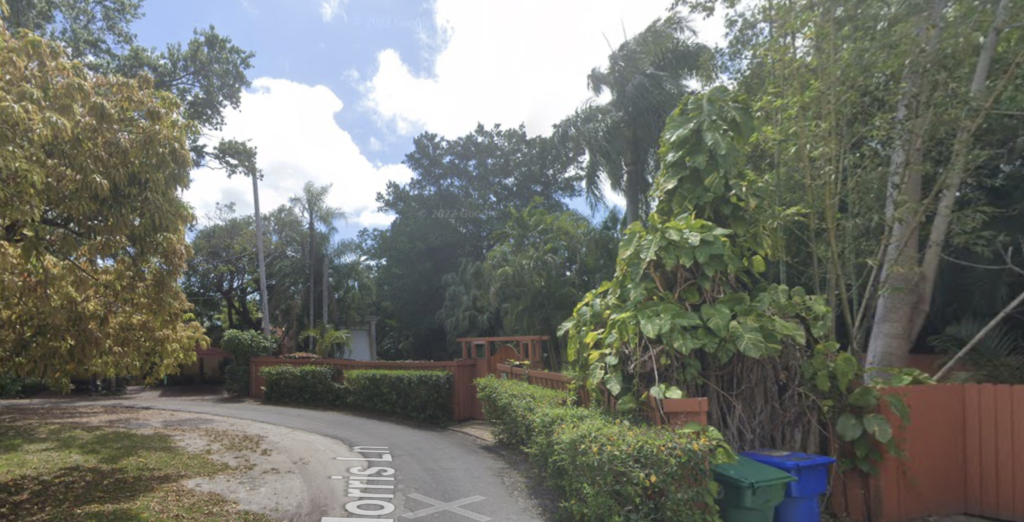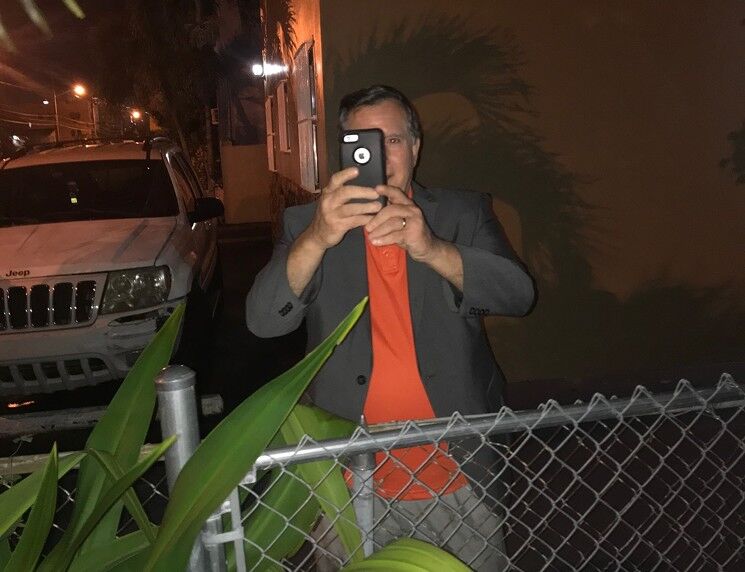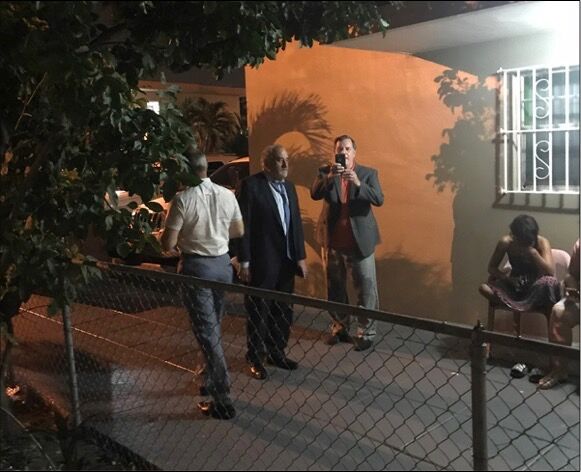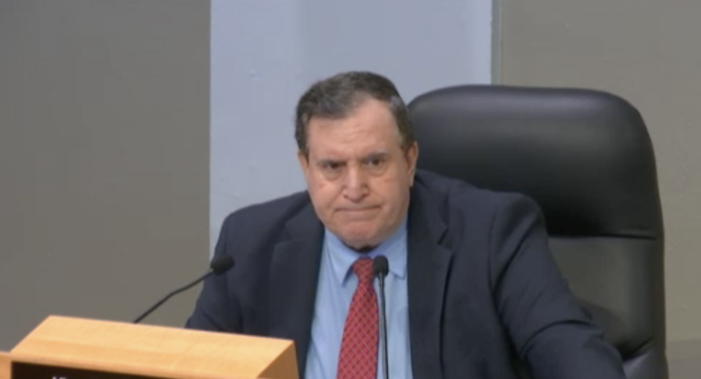His Coconut Grove house is safe for now. A judge ruled on Friday that Miami Commissioner Joe Carollo can keep his Morris Lane casa off the auction block until it is determined that it is not a legally homesteaded property.
U.S. Marshals posted a notice of levy on the multi-million house last month in an effort to get part of the $63.5 million judgement a jury awarded last year to two Little Havana businessmen who were targeted and harassed by Carollo, who weaponized the city against them in an effort to shut them down simply because they hosted an event for his political opponent in 2017.
But Carollo and his attorneys argue that it is the commissioner’s legal homestead, the property where he and his wife, Marjorie, live and, as thus, it is exempt from seizure under the state constitution.
Read related: Feds move to take Joe Carollo’s Coconut Grove house for $63.5 mil judgement
Problem with that is that Carollo changes his residency status to suit his political and/or financial needs like he changes his tighty whities. Knowing that there was no way he could win an election in District 2, where his house was located before the tainted redistricting process, he changed his residency to run for office. He abandoned that Morris Lane home and moved into District 3, first to a rented apartment and, later, a rented house in Little Havana.

Attorney Jeffrey Gutchess, who represents Ball and Chain owner Bill Fuller and his business partner Martin Pinilla — who together own several properties in Little Havana that were targeted by Carollo — is arguing that this amounts to another example of the abuse of power a jury found the commissioner guilty of.
“Defendant Joe Carollo hopes to thwart this Court’s Final Judgment by lodging a homestead exemption claim that stems from a pattern of corruption, deception, and abuse of his government authority similar to that which triggered his underlying liability for damages in the first instance,” Gutchess wrote in a motion opposing the homestead argument.
“To be sure, the Florida Constitution exempts legitimate homestead property from being subject to forced sales in order to promote a laudable public interest in preventing families from facing unwarranted financial insecurity,” the motion reads. “But that that public purpose would not be served—and in fact would be undermined—if Carollo’s homestead exemption claim allowed him to escape the consequences of a career spent wielding his government authority as a weapon of retaliation and leaving a trail of destroyed businesses and insecure families in his wake.”
Read related: How can Miami’s Joe Carollo pay $63.5 million damages in federal jury award?
In the karma is a bitch category: The motion brings up the 2017 lawsuit challenging his residency that Carollo won based on his established residency somewhere other than his house.
“Carollo prevailed in a challenge to his eligibility based on his residence and was permitted to serve as Commissioner for District 3 because he successfully established that he had abandoned his Morris Lane Property which was located in District 2,” it says.
Gutchess is confident that the court will rule in their favor and they will be able to auction the house off to satisfy part of that debt. “That’s okay,” he told a TV reporter outside the courthouse last week after the judge temporarily suspended the sale of Carollo’s house. “We’ll do it in a month or so.”
While Carollo called it a win last week, it’s really just a speed bump in what has been a losing streak for him — and for taxpayers who have been footing his legal bills (more than $2 million so far). Documentary filmmaker and government gadfly Billy Corben confronted Carollo outside the courthouse last week and demanded that he stop using the city’s coffers (read: taxpayers’ dime) to pay his legal fees. Carollo lost it and could only repeat his same lie over and over, that Corben was paid by the plaintiffs to be a critic. No, Joe, that just comes naturally to some of us.
NBC 6 Miami captured the exchange and we thank them.
And now the city is facing its own lawsuit against the city manager, city attorney and all who helped Carollo use city resources to target the two businessmen. The argument? If Carollo is guilty, so, then, are they.
What Carollo did to Fuller and Pinilla was so “reprehensible,” that he deserves the hefty judgement against him for violating their First Amendment Rights. That’s what U.S. District Judge Rodney Smith said last month when, in a separate decision, he denied the commissioner’s motion for a new trial or, in lieu of, a reduction in the award.



“Defendant argues that the damages awarded are so grossly excessive that they shock the conscience. The Court disagrees,” the judge wrote in his ruling. “The only shock to the conscience here is that Defendant used his position and power to weaponize the City government against Plaintiffs because Plaintiffs chose to exercise their First Amendment rights by supporting Defendant’s political opponent.”
Carollo brushed it off when WPLG Local 10 Reporter Christina Vasquez asked him about it at a ground breaking for park improvements a few days after. “Do you see me worried,” he asked.
Yeah, actually, we do Joe. You look a little worried. You sounded a little worried when you told The Miami Herald that you were looking at the homeless differently, wondering if you might be among them one day. It would definitely be poetic justice if you were to find yourself in a tent at an encampment that you criminalized.
Carollo is obviously worried because he has gone to a lot of lengths to try to keep his house from the auction block. He definitely had something to do with it being magically drawn into District 3 during the redistricting process. It is not a natural addition. Lobbyist and consultant Miguel De Grandy, who provided the city with the redistricting service, has testified that he purposely stretched District 3 into Coconut Grove to include Carollo’s house to please the commissioner. He won’t say that he was told to do so with the commissioner’s knowledge because that would violate attorney client privilege, wink, wink, nod.
The redistricting favor gave Carollo cover to move back into the house in April of last year, just months before the end of the trial, which he knew he was losing.

